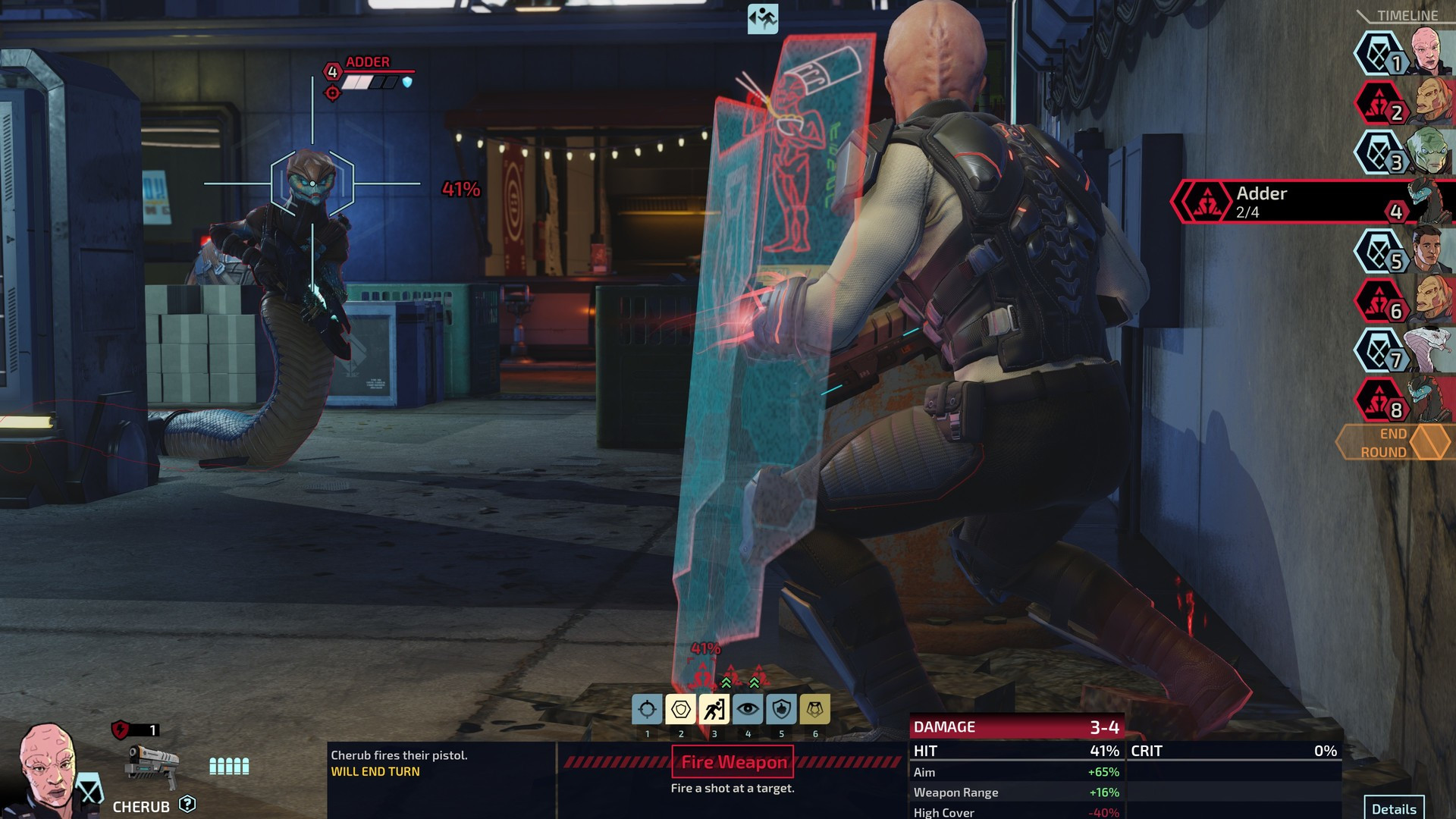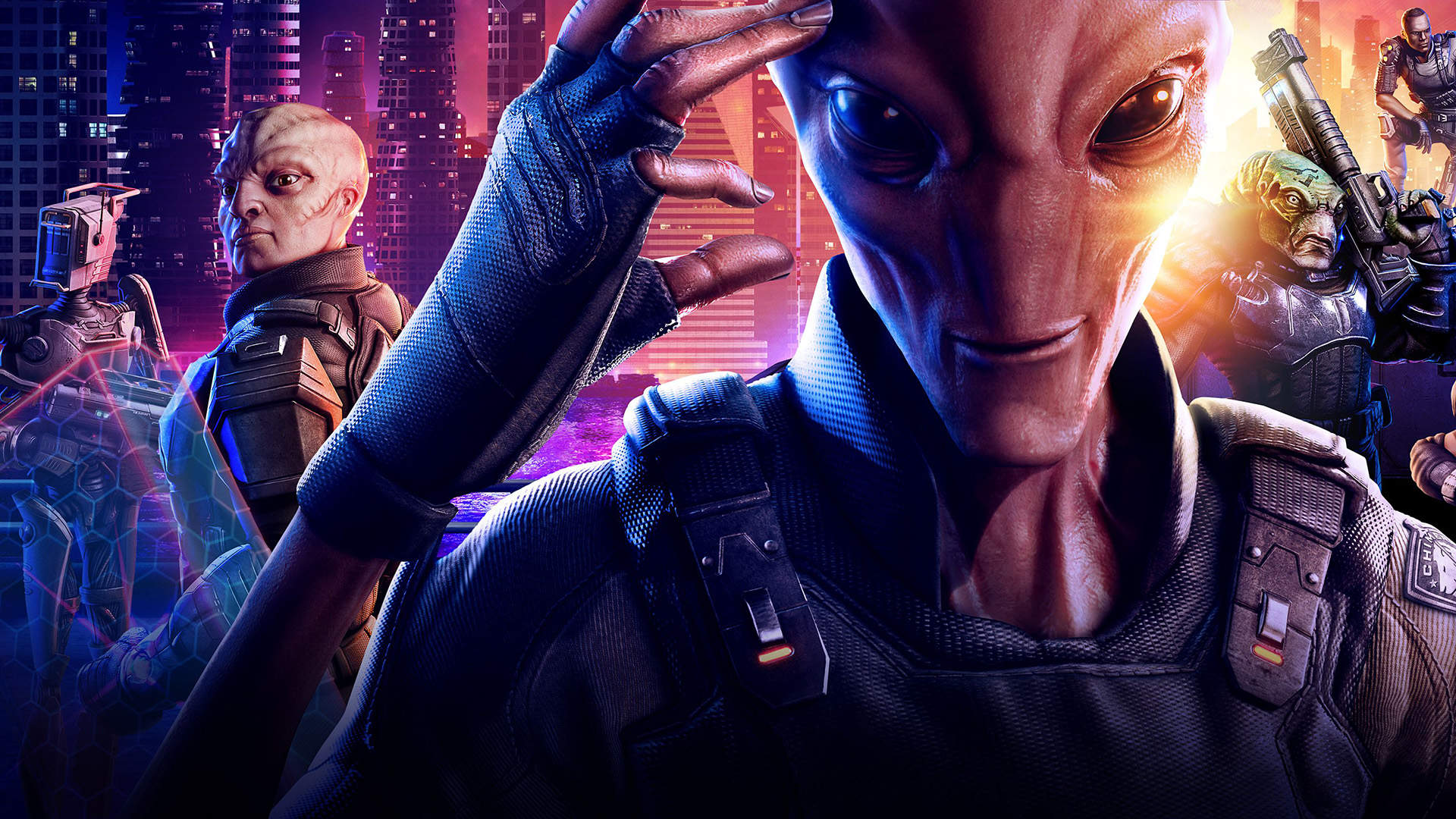
The reason this matters isn’t that we all love to play dress-up (though we do, let’s be honest), but rather because the sense of kinship you felt with your squad in the earlier games is missing. You also can’t customise them beyond changing the armour tint in a variety of dull colours or switching their loadouts – even the guns only change later when you start to find the “epic” weapons. Firaxis have reached for natural chemistry but fallen a little short, and the majority of the banter feels forced. One is snarky but cocky, one is snarky but by-the-book, one is snarky but aggressive.

They’re essentially all “snarky but…”, with various other adjectives following the “but”. Because these characters are pre-made, they come with baked-in “personalities” that seem to have been copied down from the Big Book of Character Cliches. In fact, the incessant banter is one of the more egregious sins committed by XCOM: Chimera Squad. I mean, the plot doesn’t leave much room to go the Alien Nation route, but it still would have been nice to have the alien races act a little less human. Instead, the aliens just banter like they’re New York born-and-bred. There is peace, and an incredibly interesting world that kind of just spins in the background and doesn’t get the chance to explore itself. City 31 is a multi-species metropolis where the majority of the alien races who have spent the last 25 years causing so much trouble for humanity have come to learn American slang. Downsizing from the international crisis of the last few games, Chimera Squad’s beat is not the global stage but a single city. I mean, some of them are great, but the elements that have been removed seem to have been cut purely to facilitate the tightening of belts.įor a start, everything is on a smaller scale here. In fact, it almost feels that Firaxis are using the budget price and quiet release to prove out a few of their new ideas. First I should point out that XCOM: Chimera Squad is a deliberately smaller title than Enemy Within or XCOM 2. For example, gone is the deep customisation of your soldiers, replaced now by a pre-made cast of characters with compact skill trees, pre-determined backstories and a penchant for annoying banter between salvos of plasma fire.īut I’m rushing ahead here. For every one of Chimera Squad’s new ideas (and some of them are solid, by the way), they saw fit to balance the quality by removing something that didn’t need removing.

“Surely it’s guaranteed to be spectacular?”

“But Chimera Squad is an XCOM game, for Goodness’ sake,” you rationalise with yourself. You start to worry, to look for the faults before you’re really close enough to see them. You wonder why the publisher – especially one as big as 2K Games – would keep the development of something – especially a new XCOM game – so hush-hush. Usually when a game is announced the way Chimera Squad was (with no prior warning and only mere weeks from the release date), the alarm bells start to ring. Which rather broad statement sort of begs the question of why XCOM: Chimera Squad suffers from the same flaw. Phantom Doctrine, Phoenix Point, Corruption 2029, Fort Triumph, and Spaceland have all made a play for XCOM’s crown recently, and to be frank they failed to take it due to one commonly denominating factor: they were not XCOM. The last few months have been positively lousy with tactical shooters.


 0 kommentar(er)
0 kommentar(er)
